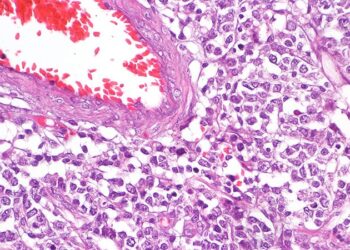A novel psychotherapeutic intervention for depression in preschoolers was associated with reduced use of psychotropics and intensive mental health services in preadolescence, a new study has found.
The study was published in Journal of the American Academy of Child & Adolescent Psychiatry.
“The need to identify depression at the earliest possible developmental point has been increasingly recognized as early onset of depressive symptoms has been associated with increased severity of mental health sequelae into adolescence including future suicidality,” the study’s first author Mei Elansary, MD, and her colleagues wrote. Elansary is an attending developmental behavioral pediatrician at Boston University School of Medicine, Boston.
“Earlier identification is also of interest due to the possibility that earlier intervention may be more effective with more powerful treatment responses,” the authors continued.
Depression can be a chronic and relapsing condition with high incidence of comorbidities and can affect children as young as 3 years, according to Joan Luby, MD, chair of psychiatry at Washington University Medicine in St. Louis, Missouri. Prevalence rates of preschool-onset major depressive disorder in the US between 1% and 2% have been reported, similar to rates in school-aged children.
Parent-Child Interaction Therapy-Emotion Development (PCIT-ED) pairs therapists with parent-child dyads to help improve the child’s emotional awareness and expression, while working with parents to help them reinforce their child’s positive behaviors. The aim is to mitigate early signs of depression in the child. The intervention was developed and tested in a randomly controlled trial, by Luby, who is also one of the authors of this PCIT-ED study.
Previously, meta-analyses have shown that for depression among youth aged 4-18 years, psychotherapeutic interventions have had only a moderate effect across randomized-controlled trials. Although Luby previously demonstrated high rates of remission upon completion of the 18-week study in her randomly controlled trial of a PCIT-ED intervention in children aged between 3 and 6 years, data regarding longer-term outcomes have been lacking.
To fill that gap, Elansary and her colleagues followed 105 trial participants — children between the ages of 8 and 12 years — (4 years after the trial’s treatment completion) to find those who’d remitted and any evidence of decreased use of mental health services and psychotropic prescriptions compared with participants who’d not had a response to the treatment. More than two thirds of the participants were men (68.6%).
Diagnostic interviews of the children and their primary caregivers were conducted to assess the children for any symptoms of major depressive disorder, such as guilt, sadness, aggression, and sleep problems. The investigators also examined parenting strategies and whether caregivers had depression.
Elansary et al found there was a high rate of remission at preadolescence (57.1%). Those in remission at preadolescence had significantly lower rates of lifetime use of alpha agonist, antidepressant, and atypical antipsychotic medication as well as decreased utilization of intensive mental health interventions.
Whether a child exhibited externalizing symptoms post-intervention predicted relapse. These included symptoms of diagnoses such asattention deficit hyperactivity disorder, oppositional defiant disorder, and conduct disorder.
Luby credited the enduring effect of this intervention to its effect on parent-child interactions. “After the treatment ends, the parent continues to interact with the child with greater sensitivity, and that becomes a draw to the child,” Luby said in a media advisory. “The truth is there’s nothing a child wants more than a validating, nurturing caregiver.”
One expert lauded the findings, noting that early childhood depression has tended to be overlooked.
“As a society, we might have thought that these children are too young to be depressed, and we might explain it with adverse childhood events or caregiver depression, but the research seems to suggest that this is a distinct problem which is not fully explained by these things and with real downstream consequences. The opportunity to intervene early is essential,” Carl Bryce, MD, told Medscape Medical News. Bryce is the chair of family medicine at Midwestern University’s Abrazo Central Campus in Phoenix, Arizona.
The implications for clinical practice, according to Bryce, are that primary care physicians need to be able to distinguish depression in young children from typical age-appropriate development, and that qualified mental health providers skilled in the evaluation and treatment of this population will need to be available.
“Every child needs a personal physician with whom parents can discuss any concerns, even mood symptoms at a very young age,” Bryce said. “And children need effective treatments based on high-quality evidence that we can advocate for and guide them toward. This study is another step toward that future.”
Elansary, Luby, and Bryce disclosed having no financial conflicts of interest.
Source link : https://www.medscape.com/viewarticle/parent-child-therapy-works-depression-young-children-has-2025a1000hoi?src=rss
Author :
Publish date : 2025-07-03 08:26:00
Copyright for syndicated content belongs to the linked Source.














